Living with Gratitude: Life-Saving Transplant Care Brings New Beginnings
After receiving their transplants at NewYork-Presbyterian, three patients share how the gift of life gave them a second chance.
Rachel Harper was no stranger to having tough conversations in doctor’s offices, being a cancer survivor and having lived with familial cardiomyopathy, a genetic disease of the heart muscle that often left her feeling weak and out of breath. Still, the 51-year-old mother of four struggled to process what her cardiologist told her at an appointment in 2019. After running some tests, her care team discovered that Rachel’s heart failure was rapidly progressing, and she needed more serious intervention.
“Rachel, you are dying,” Dr. Kelly Axsom, medical director at NewYork-Presbyterian’s Centralized Heart Failure Management Program, remembers telling her. “But I’ll be damned if I let you die in front of me. You are a strong woman. You have so much to live for.”
Dr. Axsom presented her with two options: get a left ventricular assist device (LVAD), a surgically implanted heart pump that would help her weakened heart until she was able to get a transplant, or begin hospice care.
“I didn’t want to hear it,” Rachel admits, recalling how she stormed out of the appointment. “I didn’t want to make a choice.”
When she got home that day, Rachel cooled down and thought about how far she had come. In and out of local hospitals for years, she had been so sick that she could barely eat or stand up straight. Her family encouraged Rachel to seek care at NewYork-Presbyterian/Columbia University Irving Medical Center, and it was only then that she began to see improvement in her heart failure symptoms.
“My progress started at NewYork-Presbyterian,” Rachel says. “They took a chance on me, and I decided to come back and take that same chance.”
Rachel went back to the hospital and decided to undergo the LVAD implantation in August 2019, beginning her journey to a healthier life and a new heart.
Fighting to Get Healthy
From the age of 35, Rachel had been living with health challenges. She had a defibrillator implant to detect and stop irregular rhythms for her weakening heart. Her heart condition had also led to a clot in her heart, which caused a stroke. Apart from her cardiac issues, she was diagnosed with lymphoma in 2016 and underwent cancer treatment.
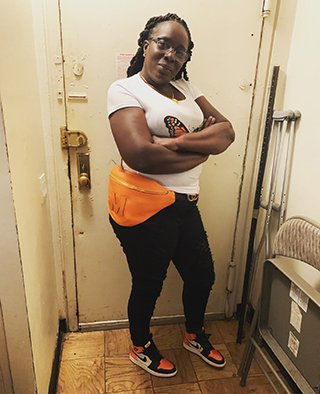
Rachel customized fanny packs for her LVAD battery, embracing the device as part of her life.
With her health failing — she had been hospitalized more than 20 times — she went to NewYork-Presbyterian/Columbia University Irving Medical Center in 2017, hoping doctors could finally get her on the right path.
“I had been to other [hospitals] where they called me a hypochondriac,” Rachel recalls. “For years, other places couldn’t treat what was wrong with me.”
“She had very low heart function and was in dire straits,” says Dr. Axsom, who is also an assistant professor of medicine at Columbia University Vagelos College of Physicians and Surgeons. “But she was tough, and we wanted to fight for her.”
The NewYork-Presbyterian team helped stabilize Rachel’s heart function with medication and implanted a small sensor device to remotely monitor any changes.
“When I started seeing Dr. Axsom and her team, it was a thousand percent turnaround.” Rachel says. “As time went on, I started sitting up straight, I was able to stand up, I was able to eat.”
But in 2019, her health took a turn for the worse again.
Due to her history with cancer, Rachel was a high-risk candidate for transplant. Doctors wanted her to be disease-free and give her body an opportunity to heal. An LVAD, a mechanical pump that helps the heart’s bottom left chamber pump blood through the body, was her best chance to reduce heart failure symptoms and offer lifesaving support.
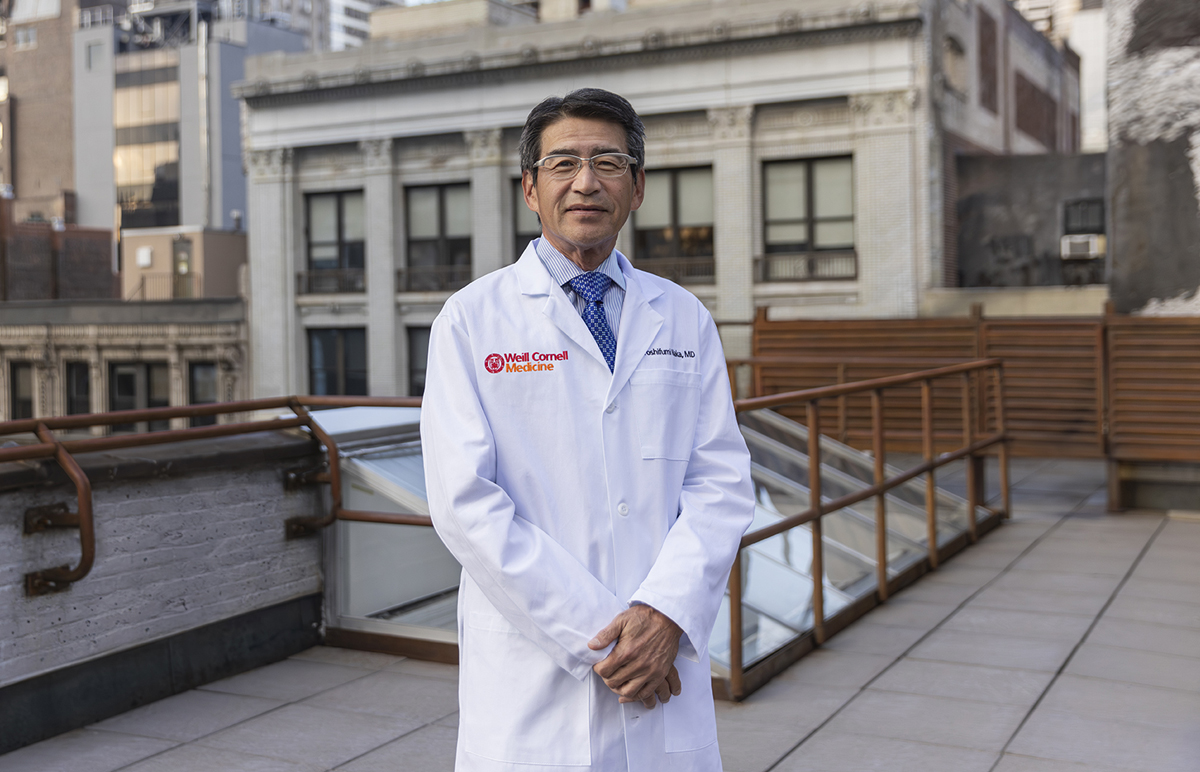
Dr. Yoshifumi Naka
From Apprehension to Advocacy
Following her procedure with cardiac surgeon Dr. Yoshifumi Naka, surgical director of heart failure, heart transplantation, and mechanical circulatory support programs at NewYork-Presbyterian, Rachel’s world opened up: Bike rides through Central Park, roller-skating, cheering on her son at basketball games, having dinner with family — she enjoyed all the simple pleasures she had missed for years.
She quickly embraced the LVAD as a part of who she was, customizing and bedazzling fanny packs to carry the external battery for everyday use and special events like her daughter’s wedding.
Rachel was eager to pay it forward. After getting her LVAD, she became an advocate for patients considering the treatment, sharing her experience with others. She lived with the device for three years.
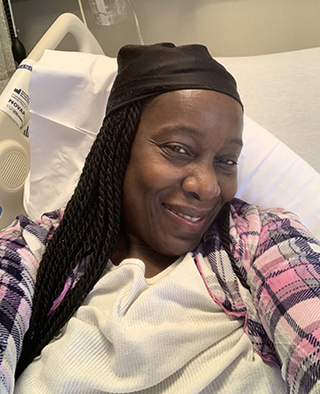
Rachel received a new heart on January 5, 2022.
A New Heart
Then, in 2021, Rachel experienced an infection in her driveline, a connector that extends from the internal device to the controller outside of the body. This posed a risk of greater illness and was coupled with a complication in the LVAD that was preventing the flow of blood.
Fortunately, Rachel had reached a point in her post-cancer recovery where her care team felt confident that she was ready for the next chapter in her journey: At the end of December, she was placed on the national waiting list for a heart transplant. After a five-day wait at the hospital, Rachel received news of a donor heart, and on January 5, 2022 she underwent a successful four-hour surgery led by Dr. Yuji Kaku, surgical director of the Cardiogenic Shock Program at NewYork-Presbyterian/Columbia University Irving Medical Center.
The initial weeks of post-transplant recovery were difficult and taxing on her body, she recalls, but within months, she was feeling stronger and looked forward to making plans with her family and friends.
“Rachel is an exceptional person. Her energy and attitude are unique and helped her recover not only physically, but mentally,” says Dr. Paolo Colombo, medical director of the Mechanical Circulatory Support Program at NewYork-Presbyterian/Columbia University Irving Medical Center and professor of cardiology at Columbia University Vagelos College of Physicians and Surgeons.
The collaboration and compassion between a patient and their care team is key, Dr. Axsom adds.
“Our team recognizes that patients need time to make really big life decisions, and we need to be there to support them not just in the big, crash moments, but through thick and thin,” she says.
Moving Forward
In the year after her transplant, Rachel went dancing and bowling with her four children, and traveled to Jamaica and Florida. While she marked her first post-transplant birthday on August 23, she had no big plans. Instead, she waited until the new year, which she rang in with a cake and a small party with her close family. “My new birthday is January 5. That’s what I’m celebrating from now on,” Rachel says of her heart transplant date.
Celebrating her mother’s 80th birthday and her daughter’s wedding, putting on a pair of heels to dance, and cooking holidays meals for her family are milestones that she doesn’t take for granted.
Says Rachel: “I’m blessed. From having a stroke, my heart, pneumonia, the chemo, the LVAD, my chest opened twice — to still be standing? I’m grateful for everything, to have just one more day.”
A Second Chance
Two transplant patients share in their own words how the expert teams at NewYork-Presbyterian helped give them a new beginning.
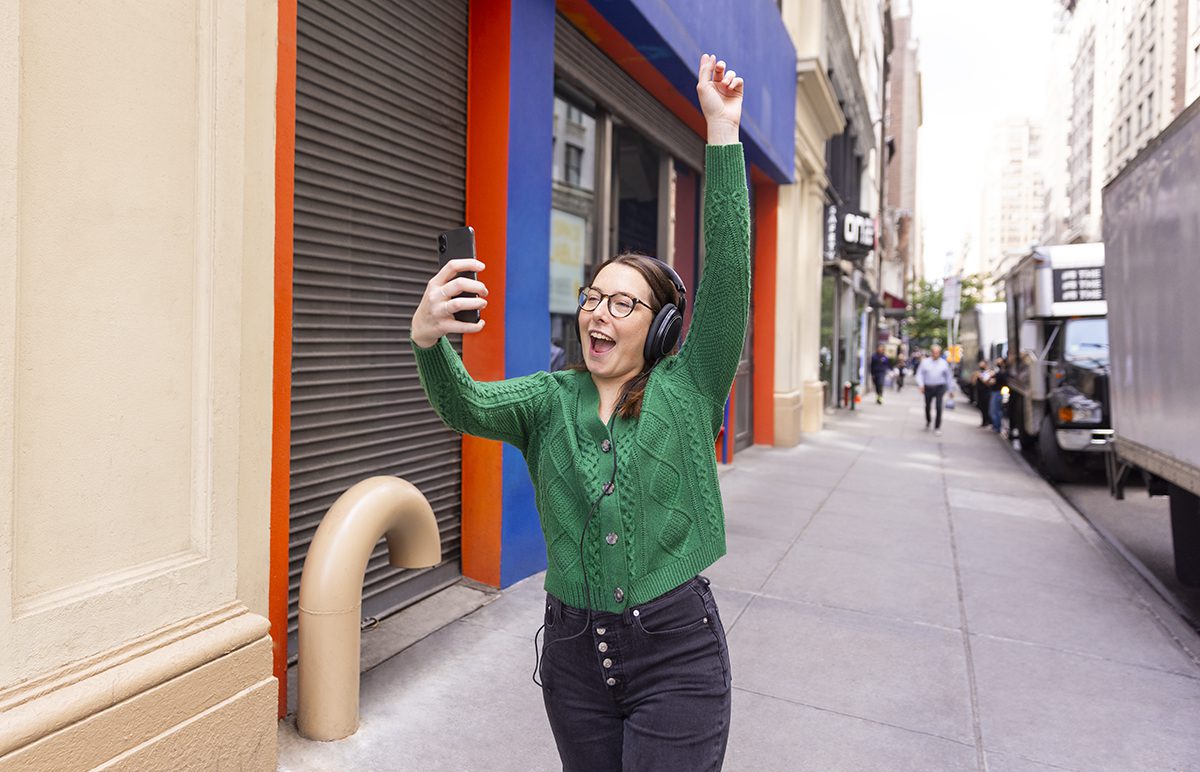
Kelsey Weddig
I was a healthy kid living in rural Wisconsin, until I passed out at an elementary school track meet at the age of 11. I was diagnosed with pulmonary arterial hypertension (PAH), or high blood pressure in the arteries that go from the heart to the lungs, making it more difficult for the lungs to deliver oxygen to the blood and the body.
I developed PAH due to a mutation that causes Hereditary Hemorrhagic Telangiectasia (HHT), a genetic disorder that causes abnormal blood vessel growth.
For several years, my condition was well-managed on several medications, but anemia worsened my PAH. Not long after I graduated nursing school, I coughed up blood and ended up in the intensive care unit.
I had end-stage PAH, respiratory failure, and needed a double lung transplant. I knew my PAH diagnosis would eventually require transplant, since there is no cure, but to be told that at 22 years old — just as I felt like my life was truly beginning — was a huge blow. Basic activities like getting dressed, making food, and walking to the car took a lot out of me.
Multiple lung transplant centers across the country said they wouldn’t take on my case because of concern for increased bleeding due to the HHT. But Dr. Luke Benvenuto and his team at NewYork-Presbyterian/Columbia University Irving Medical Center took a chance on me.
It turns out, my life was far from over; it was just beginning.
After a successful double lung transplant in March 2023, I not only gained back my ability to breathe easy, but I learned so much more about myself. My physical and mental fortitude are more than I even knew I possessed.
I had the best support system in my family and friends, here in New York and back home in Wisconsin. Nearly nine months after my transplant, I even ran a 5K with my transplant team. To do that with people who quite literally saved my life means more than I can explain.
I became the program coordinator at NewYork-Presbyterian Hospital/Columbia University Irving Medical Center’s HHT Center of Excellence and can now give back to patients like me.
Not only am I living in New York City, but I can run down a busy street after a bus if I’m late. During the summers I can jump in the middle of a lake to swim for hours. I can cheer for my teams at sporting events, or my favorite musical artists at concerts. I’ve come to cherish being able to jump around, dance and scream with my new lungs, all without second thought. This transplant has given me my life back. I’m living out dreams I never knew I had.
“Kelsey has an incredible strength about her, and from the moment we spoke I have always drawn inspiration from her attitude and approach to life. I am grateful that we were able to help her and be a part of her care team.”
– Dr. Luke Benvenuto
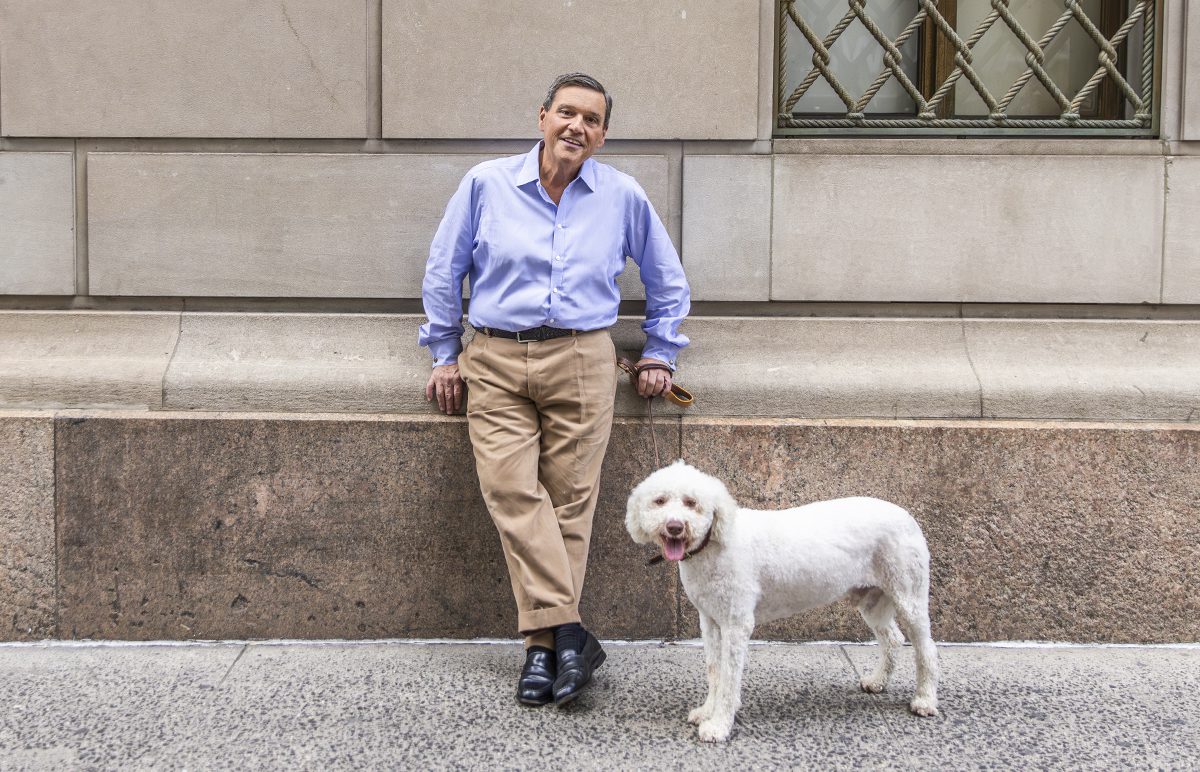
Richard J. Miller, Jr.
In August 2019, I was a busy lawyer, opera singer, father and husband. Life was everything I hoped it would be, but I didn’t realize that I was suffering from a chronic, life-threatening disease.
While on vacation with my family, I collapsed and fell down a flight of stairs. I had a blood infection, and doctors ultimately diagnosed me with non-alcoholic fatty liver disease. I was told I needed a liver transplant or I would die.
I was hoping things were going to get better, but I was suffering from the loneliness of a chronic disease and the pandemic and my doctors at NewYork-Presbyterian recommended a support group. Along with transplant social worker Aimee Muth, I helped start one for pre-transplant patients at NYP.
Due to my liver disease, I had encephalopathy, which affected my thinking and memory. I couldn’t remember lyrics when I sang, and it was impacting my daily life. During the COVID-19 pandemic, doctors found a cancerous tumor on my liver, which surgeons removed in 2020. Six months after being cancer-free, Dr. Benjamin Samstein called me the morning of May 31st, 2021 to tell me an organ donor was giving me the incredible gift of life.
My medical and support team was amazing. From Dr. Robert Brown, Dr. Samstein and my friend and physician Dr. Matthew Ben, to my support group and anesthesiologist, the level of attention and collaboration made me feel like my life was treasured and I mattered.
I’m back. I’m able to look around and appreciate everything I see: my dog, walks in Central Park, the leaves changing colors. I’m a partner in my law firm, won a silver medal for singing after competing in the Transplant Games of America, and I get to watch my children get older. I’m now part of a post-transplant support group, and with the help and friendship of other transplant recipients, we continue to live.
My experience as a transplant recipient at NewYork-Presbyterian doesn’t stop with the transplant. It’s an ongoing relationship with my doctors and care team. I’m here because of their efforts and the decision my donor made to be an organ donor. I have eternal gratitude for them giving me this second act of my life.
“Rich approaches his health care the same way he approaches singing, with enthusiasm and gusto. The successes of Richard and so many others make it so rewarding to be part of the liver transplant team at NewYork-Presbyterian/Weill Cornell Medical Center, where every member of the team is not only extremely skilled but also compassionate.”
– Dr. Robert Brown
Additional Resources
Learn about transplant services at NewYork-Presbyterian, the largest and most experienced transplant program in the nation.
Learn about heart failure and heart transplant services.
Find out more on NewYork-Presbyterian’s comprehensive liver care.
Learn about lung transplant care at NewYork-Presbyterian.
